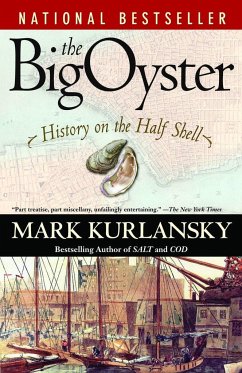"Part treatise, part miscellany, unfailingly entertaining.” -The New York Times "A small pearl of a book . . . a great tale of the growth of a modern city as seen through the rise and fall of the lowly oyster.” -Rocky Mountain News Award-winning author Mark Kurlansky tells the remarkable story of New York by following the trajectory of one of its most fascinating inhabitants-the oyster. For centuries New York was famous for this particular shellfish, which until the early 1900s played such a dominant a role in the city's life that the abundant bivalves were Gotham's most celebrated export, a staple food for all classes, and a natural filtration system for the city's congested waterways. Filled with cultural, historical, and culinary insight-along with historic recipes, maps, drawings, and photos-this dynamic narrative sweeps readers from the seventeenth-century founding of New York to the death of its oyster beds and the rise of America's environmentalist movement, from the oyster cellars of the rough-and-tumble Five Points slums to Manhattan's Gilded Age dining chambers. With The Big Oyster, Mark Kurlansky serves up history at its most engrossing, entertaining, and delicious. "Suffused with [Kurlansky's] pleasure in exploring the city across ground that hasn't already been covered with other writers' footprints.” -Los Angeles Times Book Review "Fascinating stuff . . . [Kurlansky] has a keen eye for odd facts and natural detail.” -The Wall Street Journal "Kurlansky packs his breezy book with terrific anecdotes.” -Entertainment Weekly "Magnificent . . . a towering accomplishment.” -Associated Press
Kurlansky's great ability is to chose a single element as a prism through which to view the development or degeneration of culture; in this book he takes his readers from the 16th century to the present day, encompassing biology, commerce, the politics of race, history, literature, and, of course, gourmandise Erica Wagner The Times


